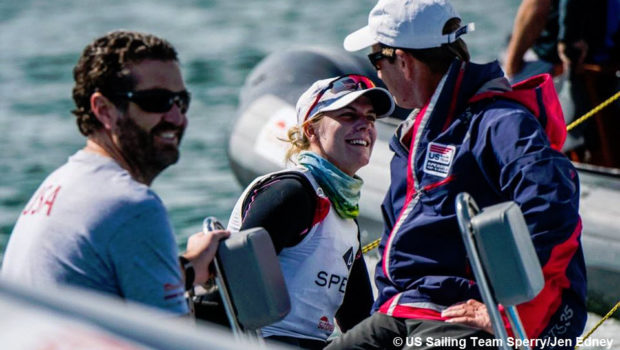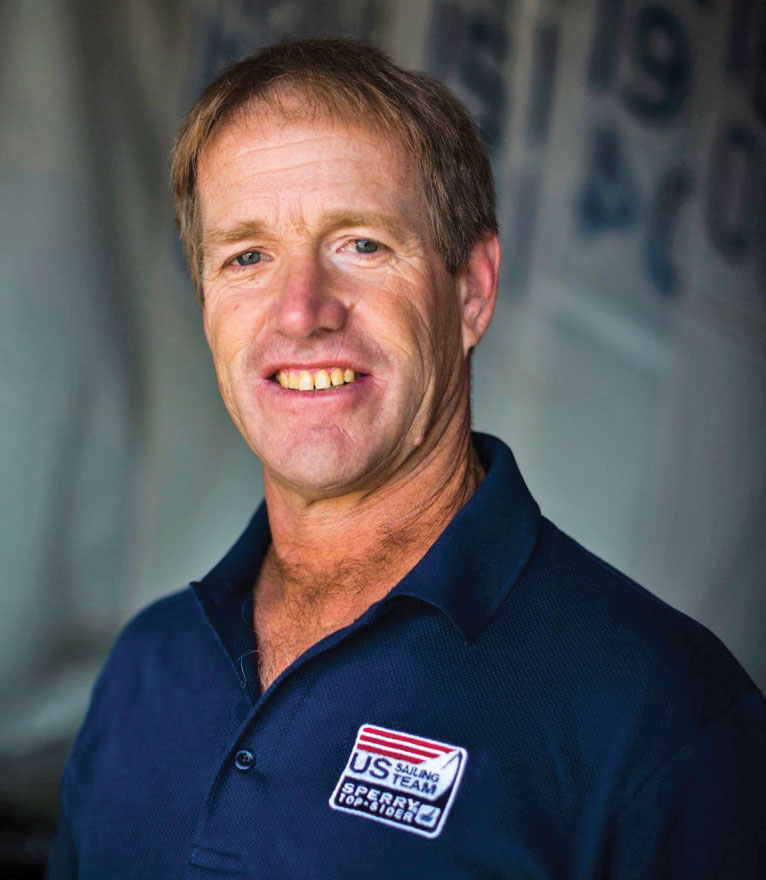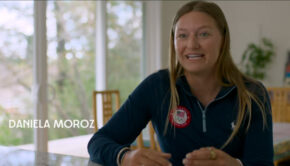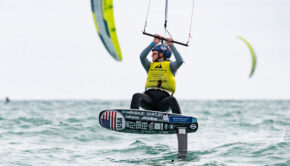Creating a Winning Culture
Published on July 5th, 2016
Two-time U.S. Olympic medalist Charlie McKee is in his first quad as High Performance Director for the US team as they prepare for the 2016 Olympic Games. Scuttlebutt editor Craig Leweck spoke with Charlie about the program this quad.
What have been some of the significant changes during this quad that you’ve been able to initiate?
As coaches you never want to take too much credit when your team does well or blame when the team doesn’t do well. It’s mostly up to the athletes. I think we have tried to instill a very process oriented learning environment. With the expectation that you’re going to achieve a really high level of competency at what you’re doing, then the results will follow from that.
In a bigger, broader context, we want to have a deeper pool of talent and we know that working together is the way to have performance that continues in the long term. We feel quite good about what we are trying to achieve in the long term, those things that we’re doing to build from the ground up. But none of that’s going to help us this quad.
One clear thing that we’ve done this quad is take the situation in each of the ten classes and determine how we can help the most, and not have one way of how we’re going to do it. The classes are so different and the competitive situation in each class is so different. We have to be responsive to what athletes we have, what they need, and then how we can help them.
In some cases they need to be hooked up with a good foreign training partner and in some cases we need to gather our sailors and do a lot of domestic training before we compete internationally. In some cases they need help in a particular area so we seek out experts for them to make that happen.
I feel very good about the coaches with which we have been able to surround our sailors. They don’t do the job for you, but it is more likely that our sailors are going to learn and continue to grow and evolve. I am quite pleased that such experienced, great sailors and coaches believe enough in what we’re doing that they want to be involved to help the team. I feel really good about that. I think that’s one of the things that we’ve clearly achieved here.
How involved are you in directing the path for each sailor?
If we have super young people coming in that clearly don’t have the same campaign experience that we have, then we need to help guide, and make a plan that can be a winning plan. And that has to have some longer-term vision to it, too. I feel like we’re doing a good job with that and I feel if you ask our sailors and our young people on this team, they believe that we’re in their corner and that we are helping them and guiding them.
There is certainly flexibility in the process. These are all life choices that they make, and we help, and we work around what their individual circumstances are. But as I say that, it is harder to make ten plans. It’s a lot harder, but we’re pretty convinced that’s the right thing. I feel good about our willingness and ability to be flexible to people’s circumstance. If you look in the past, with our greatest US sailors, there hasn’t been any one way that they all campaigned. They’re very different so you have to guide and steer while at the same time recognizing their individual differences.
Are there difficult moments when tough talk is needed?
I’m a pretty positive person, and we want to surround ourselves with people that have pretty strong beliefs, but if we don’t believe that the amount of effort they are putting in is going to succeed, we tell the very directly. As an example, somebody whose goal is to make it to the Olympic Games but does not push themselves hard enough to be in contention, then we are not supportive of that, and we will not pretend that that’s great.
We’re going to have a young team at the Rio Games, and we’re going to have people that are going to the Olympics that are not going to be in contention to win medals. But this is part of the typical cycle. The first campaign is learning how to get to the Games, the second campaign is actually getting to the Games, but you don’t contend for a medal, and your third time you actually win a medal. That’s the normal international track.
The people that are going to go to this Olympics but are not at a level where they can contend, we will work hard for them in both their individual sailing and in the whole team environment. We want their experience to be positive enough that they do use it as a springboard. But for people that just want to do just enough to only get there, that’s not we’re about. We are not about that at all. This isn’t just about getting team uniform and being in the opening ceremonies. We get pretty blunt in those situations.










 We’ll keep your information safe.
We’ll keep your information safe.